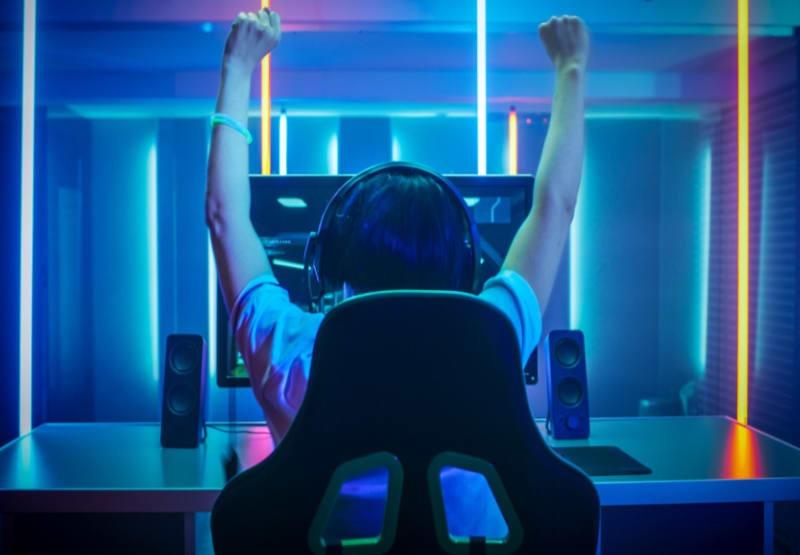Online gaming has become a popular and enjoyable form of entertainment for people of all ages. However, for some individuals, the allure of online games can transform into an addiction, impacting their physical and mental health, relationships, and overall well-being. In this 1000-word exploration, we will delve into the causes of online gaming addiction, its consequences, and effective coping strategies for those struggling with this issue pg slot สมัคร.
Understanding Online Gaming Addiction
Online gaming addiction, often referred to as gaming disorder, is characterized by an excessive and compulsive engagement with online video games to the detriment of other aspects of a person’s life. It has been officially recognized as a mental health condition by the World Health Organization (WHO) and is included in the International Classification of Diseases (ICD-11).
Causes of Online Gaming Addiction
Several factors can contribute to the development of online gaming addiction:
Escapism: Online games provide a means of escape from real-life problems, stress, or boredom. For some individuals, gaming offers a temporary reprieve from their daily challenges, making it an appealing coping mechanism กิจกรรมเครดิตฟรี แจก.
Social Interaction: Online games often feature social components, such as multiplayer modes and in-game chats. For people who struggle with social anxiety or loneliness, online gaming can serve as a way to connect with others and form virtual friendships.
Rewards and Achievements: Many online games incorporate reward systems, achievements, and progression mechanics. These elements can trigger a sense of accomplishment and the release of dopamine, which can be highly reinforcing and addicting sabai999.
Competitive Nature: The competitive nature of online gaming can drive individuals to spend excessive time playing to improve their skills, climb leaderboards, and gain recognition among their peers.
Peer Pressure: Friends and gaming communities can exert pressure on individuals to continue playing. The fear of missing out on in-game events, competitive seasons, or social interactions can keep players engaged for longer periods.
Availability and Accessibility: Online games are readily available and accessible across various platforms, including PCs, consoles, and mobile devices. This convenience makes it easier for individuals to engage in gaming at any time.
Monetization Strategies: Many online games employ microtransactions, loot boxes, and other in-game purchases. These financial incentives can lead to excessive spending and further reinforce gaming addiction.
Consequences of Online Gaming Addiction
Online gaming addiction can have profound and far-reaching consequences, affecting various aspects of an individual’s life:
Physical Health: Prolonged gaming can lead to physical health issues such as sleep disturbances, eye strain, headaches, and a sedentary lifestyle. Neglecting self-care and proper nutrition is common among those addicted to gaming.
Mental Health: Gaming addiction is often associated with mental health issues such as anxiety, depression, and social isolation. Escaping into virtual worlds can exacerbate real-world problems and hinder personal growth.
Academic and Occupational Performance: Neglecting responsibilities, including schoolwork or work-related tasks, can lead to a decline in academic and occupational performance. Individuals may experience job loss, academic failure, or missed career opportunities.
Relationships: Gaming addiction can strain relationships with family, friends, and partners. Neglecting social and familial responsibilities can result in feelings of isolation, conflict, and detachment from loved ones.
Financial Problems: Excessive in-game spending and neglect of financial responsibilities can lead to financial hardship, debt, and legal issues.
Coping Strategies for Online Gaming Addiction
Overcoming online gaming addiction requires self-awareness, support, and the adoption of healthy coping strategies. Here are some effective approaches to address gaming addiction:
Self-Reflection: The first step is to acknowledge the addiction and reflect on its impact on your life. Recognize the negative consequences and consider the need for change.
Set Boundaries: Establish clear and specific boundaries for your gaming habits. Determine the amount of time you’re willing to spend gaming each day and adhere to these limits.
Seek Support: Reach out to friends, family, or a therapist for emotional support. Sharing your struggles with trusted individuals can help create a support network that encourages your recovery.
Therapy: Consider therapy options, such as cognitive-behavioral therapy (CBT) or addiction counseling, to address the underlying causes of addiction and develop coping strategies.
Replace Gaming with Healthy Activities: Identify alternative activities that can replace gaming and offer fulfillment. Engage in physical exercise, hobbies, and social events to redirect your focus.
Delete Accounts or Uninstall Games: Taking concrete steps to reduce temptation can be beneficial. Deleting gaming accounts or uninstalling games from your devices can make it more difficult to access them.
Monitor and Reflect on Triggers: Pay attention to the situations or emotions that trigger gaming cravings. Reflect on what leads you to gaming and identify healthier ways to cope with these triggers.
Develop a Routine: Create a daily routine that includes time for work or studies, social interactions, physical activity, and relaxation. A structured routine can help restore balance in your life.
Engage in Professional Help: If the addiction is severe and persistent, it may be necessary to seek professional treatment. Consider enrolling in a rehabilitation program or attending addiction support groups.
Reduce Accessibility: Limit access to gaming platforms and devices, making it more challenging to engage in impulsive gaming sessions.
Educate Yourself: Learn about the potential negative consequences of excessive gaming, the mechanics of addiction, and strategies for healthier gaming habits. Knowledge can empower you to make informed choices.
Accountability: Share your goals and progress with a trusted friend or family member who can hold you accountable and provide support throughout your recovery.
Conclusion
Online gaming addiction is a serious concern that can have detrimental effects on physical and mental health, relationships, and overall well-being. It is essential to recognize the signs of addiction and take proactive steps to address the issue. With self-awareness, support, and the adoption of healthy coping strategies, individuals can regain control over their lives and find a healthier balance between gaming and other responsibilities and activities. Remember that recovery is possible, and seeking help is a sign of strength, not weakness.

